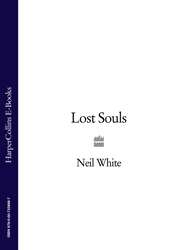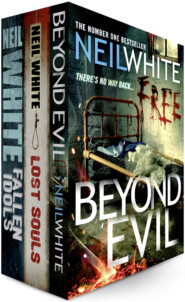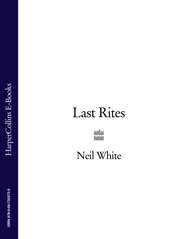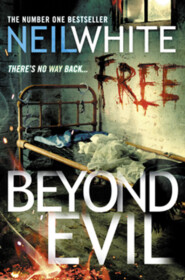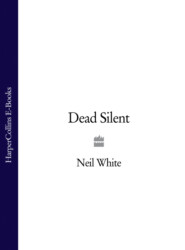По всем вопросам обращайтесь на: info@litportal.ru
(©) 2003-2024.
✖
FALLEN IDOLS
Автор
Год написания книги
2019
Настройки чтения
Размер шрифта
Высота строк
Поля
I laughed. ‘You have. You were all, well…’
‘All legs and hair?’ Alice finished off.
‘Yeah, kind of. You’ve blossomed.’
At that, it was Alice’s turn to blush.
I heard Tony cough. It was intentional, an attempt to stop the conversation. I looked round and saw Tony’s eyebrows arched, amusement lighting his eyes.
‘Anything else I can do for you, Jack? Once you’ve put Alice down, that is.’
I looked back at Alice, then back at Tony. Then I remembered why I was back in Turners Fold.
‘There is something else.’
Tony raised his eyebrows.
‘I need to plunder the archives. I haven’t got long to submit this, so I just need the quick stuff, you know, the school football results, any articles from around that time, that kind of thing.’
Tony watched me for a while, and then asked, ‘How long are you in town for?’
‘A couple of days. Deadline is Friday at noon as it’s a feature. I’ll be trying for an interview with David on Thursday.’
‘So who else are you going to speak to?’
I scratched my nose and thought about it, realising that I wasn’t really sure. ‘I thought I’d start with his football coach, and then go on from there.’
Tony shook his head. ‘He died last year. Heart attack. David came back for the funeral.’
I exhaled.
‘If you want the stats, get on the internet,’ he continued. ‘Most of the high school stuff ends up on the web these days, and it will save you some time.’
‘And if I want more of the man than the player?’ I asked.
‘Get round the pubs,’ Tony suggested. ‘It’s the best place to interview people because they’re already loosened up. Fame is a seductive drug, so everyone will have some story that’s personal to them about David Watts.’
‘But what about your archives?’
Tony smiled. ‘You can for me, but you know how funny the boss is about the archives. We know where most of his stories are, because other papers call us from time to time wanting an old picture or article.’
I held my hands up in surrender. I remembered my old boss. He was good to work for, but he was very protective of the archived newspapers. They were a history of the town, and he wasn’t going to let just anyone spoil them.
I saw Tony snatch a glance at his watch. I spotted the time and I realised that the Post’s deadline was approaching. I knew Tony wasn’t being rude. The paper had to get out, and that was all that mattered.
‘I’ll move on,’ I said, giving a wave to Tony, nodding and smiling at Alice. ‘I’ll see you in the morning, to go through some back issues.’
Tony smiled. ‘Work late and put yourself about tonight. You might come in tomorrow knowing what you want.’
And with that, I left the Post building.
I made it around the triangle and back to my car. I knew I had to go to the old house. At least if I got it out of the way, I could get on with writing my article.
I got in the car and started it up, easing out into the street, no traffic to avoid, and slowly pointed it home.
David Watts was still at home when Johnny Nixon was shot, tuned into BBC News 24, waiting for the latest from the Dumas shooting. The apartment seemed quiet with Emma on the other side of the Atlantic somewhere. The traffic from Chelsea Bridge crept in through the open balcony door, mixed in with the sounds of the river cruises, but it didn’t disturb the calm.
He’d been for a run earlier in the day, but it had been a different kind of run. He usually ran in a cap, the visor pulled down, just enough to keep the recognition at bay until after he had passed. There had been no need today. He had noticed people staring, maybe wondering what he was thinking, but there had been no shouts or catcalls.
He had returned to the apartment, hoping it would be a respite, but he had become fidgety. The newsflash about Johnny Nixon stopped the fidgeting with a slam. Now he was sitting bolt upright on the sofa, the apartment shielded from the rest of the world by drawn blinds, watching the television news for updates.
Not much was coming through. He’d sat through repeated shots of the scene, now just crime-scene tape and litter.
David got up to pace around the room.
He knew there was no connection between Henri Dumas and Johnny Nixon. Dumas had been a clean-cut guy from Paris, urban and sophisticated. Nixon had been from Leeds, and even the transfer to Manchester hadn’t knocked the inner city out of him. He had played like he had spent all his life, fighting, and David had left games with him bruised and blue more than once. Nixon and Dumas hadn’t played together as far as he knew, and were unlikely friends. That made David nervous, because it could only mean one thing: that there was no connection. And that put him at risk. Any footballer who went out in public was at risk of getting his head shot at. And then there could be copycat shootings.
He turned round when he heard a sense of urgency in the broadcaster’s voice.
‘… and it does seem a breakthrough in the case.’
He stepped away from the window and sat down.
‘Thank you, John. And there you have it: the surprisingnews that the murderer of Henri Dumas might not be amadman after all, but a madwoman.’
David whistled.
‘In the sniper’s nest where two bodies were found, bothbound, one shot at point-blank range through the head,the other strangled, hairs have been recovered from thetape that bound them. Those hairs are female hairs.’
David took a drink of beer. There were two men on the television. One was tanned and dark, the hair too dark to be natural for a man in his forties, looking warm in a grey suit, whereas the other one was much younger, blonde and relaxed in just a shirt, standing at the scene of the Dumas shooting, mostly back to normal, full of shoppers and ghouls, the cafe the only business still closed, the grey shutters bright with flowers from people Dumas had never met.
‘Well, this is turning into quite a story.’
David snapped off the television and walked towards the window. Is that what it was: just a story?
He tried to call his agent but all he got was the answering service. Where was she?
He watched the city beneath him for a few minutes and then turned back into the room. For the first time in his life, he felt powerless. He had always won, no matter what the contest. High-school hero to Premiership superstar. However, all he could do with this one was sit it out, and he hated the sidelines.
FOURTEEN (#u1d220fda-349c-55ef-a6a0-695b99a8a5f9)
I sat in the car for a few minutes outside my father’s house.
It used to be the family home, when the sash bay-windows were painted pastel-clean and the lawn borders overflowed with colour. The house looked colder now, darker, the paintwork old and listless, flaking in places, the windows dusty and full of shadows.
I hadn’t spoken much with my father since I’d been back at Christmas and for a week last summer. He was working mostly, so I just slowed down for a while and then headed back south.
As I sat there, my childhood came rushing back at me. I could sense that freshness of early-morning spring mists that I never got in the city, or the bite of a November wind when it blew into the valley from the north. I saw myself cycling down here, a skinny kid with legs whirring over the pedals, or running and skipping along, kicking autumn leaves. Teenage screams and screeching tyres, the clunk of car doors on a Sunday morning as people went to church, a catholic town. I’d grown from boy to man along this road, and as I sat there it was as if nothing had changed.






